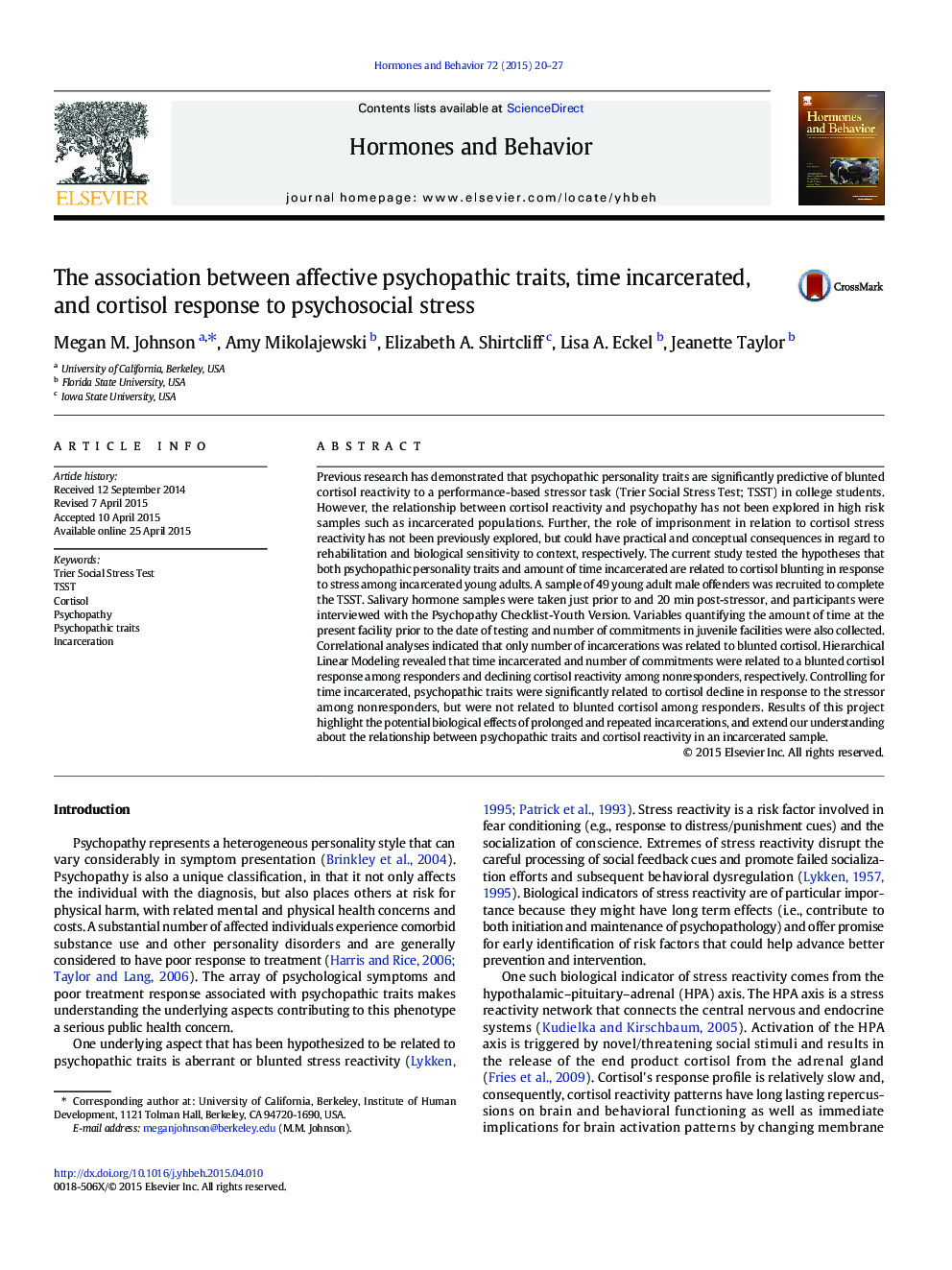| Article ID | Journal | Published Year | Pages | File Type |
|---|---|---|---|---|
| 323389 | Hormones and Behavior | 2015 | 8 Pages |
•Psychopathy, incarceration time, and cortisol stress response were examined.•Cortisol stress response was indexed in response to the TSST.•Number of commitments to juvenile facilities correlated with blunted cortisol.•HLM analyses revealed that time incarcerated and commitments were related to reduced cortisol.•Affective psychopathic traits were related to declining cortisol among nonresponders.
Previous research has demonstrated that psychopathic personality traits are significantly predictive of blunted cortisol reactivity to a performance-based stressor task (Trier Social Stress Test; TSST) in college students. However, the relationship between cortisol reactivity and psychopathy has not been explored in high risk samples such as incarcerated populations. Further, the role of imprisonment in relation to cortisol stress reactivity has not been previously explored, but could have practical and conceptual consequences in regard to rehabilitation and biological sensitivity to context, respectively. The current study tested the hypotheses that both psychopathic personality traits and amount of time incarcerated are related to cortisol blunting in response to stress among incarcerated young adults. A sample of 49 young adult male offenders was recruited to complete the TSST. Salivary hormone samples were taken just prior to and 20 min post-stressor, and participants were interviewed with the Psychopathy Checklist-Youth Version. Variables quantifying the amount of time at the present facility prior to the date of testing and number of commitments in juvenile facilities were also collected. Correlational analyses indicated that only number of incarcerations was related to blunted cortisol. Hierarchical Linear Modeling revealed that time incarcerated and number of commitments were related to a blunted cortisol response among responders and declining cortisol reactivity among nonresponders, respectively. Controlling for time incarcerated, psychopathic traits were significantly related to cortisol decline in response to the stressor among nonresponders, but were not related to blunted cortisol among responders. Results of this project highlight the potential biological effects of prolonged and repeated incarcerations, and extend our understanding about the relationship between psychopathic traits and cortisol reactivity in an incarcerated sample.
